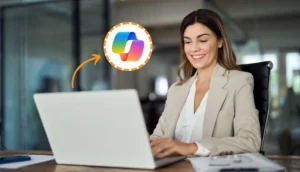26 Avr
At Mandarine, we give to pedagogy a very important place. To talk about it today, Samuel Rouxel, our educational engineer:
1. Hi Samuel, can you introduce yourself and explain your background?
Hello, my name is Samuel and today I am in charge of the whole team that produces the educational content. I have a career path that revolves mainly around management, helpdesk technique and pedagogy. The choice of this job is based on a skills assessment that has allowed me to refine my career orientations. In all my professional and associative experiences, the transmission of knowledge and human support have always been my favourite part of the job.
2 . What is your role at Mandarine Academy today?
I was recruited at Mandarine to do educational engineering, thanks to a university background in “Adult Education and Training Sciences”, and professional experiences in office training and e-learning. It has been almost 3 years now that I have had the pleasure of working on the content that Mandarine Academy offers to its users, from the creation to the evaluation. The notion of “creation” can be found both in the preparation of sessions, remotely and on site, but also in the creation of video content.
3. Do you think that training at Mandarine has a real difference compared to other solutions on the market?
I would say that Mandarine’s training offer is between two extremes: on-site training on one hand and video training (asynchronous) on the other. Live training session is what makes us unique, with the aim of providing human support to users by removing many logistical and cost barriers.
With an important technical sensitivity, the pedagogical team regularly updates software releases and collaborative trends. This is a major asset to offer content adapted to trainees and stick as close as possible to business needs.
4. Do you think this method of live training session has an impact on training?
Of course, and it’s legitimate! But where some pedagogical engineers would suffer these constraints, Mandarine Academy and the founders have embraced the distance pedagogical relationship to emerge as an active and participatory method. Remote trainer is becoming a profession in its own right, and I am proud to bear the impact of this method today. A little ahead of the classroom training tradition, I am convinced of the benefits for the employees of this learning system.
However, I remain well aware of the limits, which today are mostly technical, that a web conferencing training device represents, especially when it is not mixed with other types of training (video, classroom, tutoring etc.).
5. What is the added value of distance learning for you?
In a context where employee mobility is important, and with the challenge for IT Departments and training departments to contribute to the appropriation of digital tools, distance learning largely meets these requirements. Covering a large volume of need, whatever the geographical area, and sometimes with a budget that is not very flexible, including distance learning in its system brings value, rather on the volume and budget side.
Learning at a different pace from your neighbor is a real added value: a differentiated pedagogy, with the personalization of courses through AI for example.
6. Can you explain the training method at Mandarine? (organization, pedagogy, tools…)
A communication plan accompanies the user, and the establishment of a climate of trust is essential from the beginning of the session. The trainer has only a few minutes to get to know the participants and establish the first exchanges with them. These are the two pedagogical pillars that make it possible to transform live distance learning into a personalised pedagogical session. The screen share and his voice are the main tools to embark all participants.
7. Do you get feedback from session participants, positive or negative?
Yes, and most of them indicate their good surprise on the format. With an often negative view at first, the trainers demontrate brilliantly that virtual classes are not just information transmissions. Nominative requests, oral/on-screen interactions, exercices or even quizzes are also ways to train remotely.
Do you want to test the Mandarine Academy pedagogy through a webconference session? Register now for a live training session on our MOOC Office 365 training platform!
Would you like to know more about our offers? Contact us.








